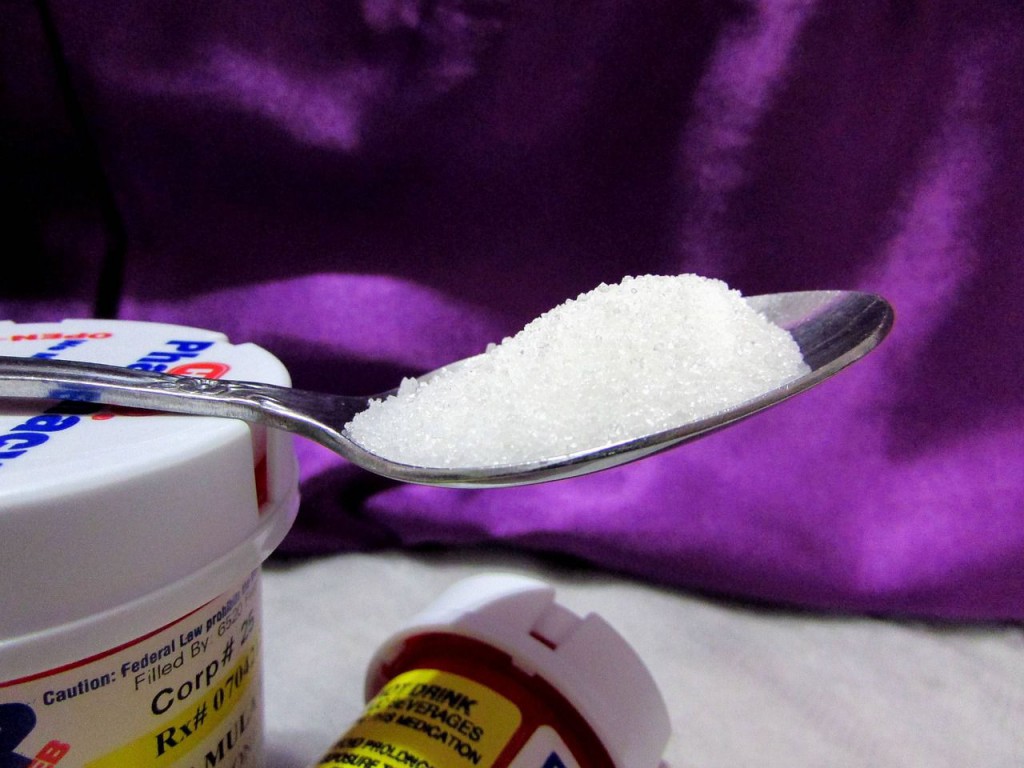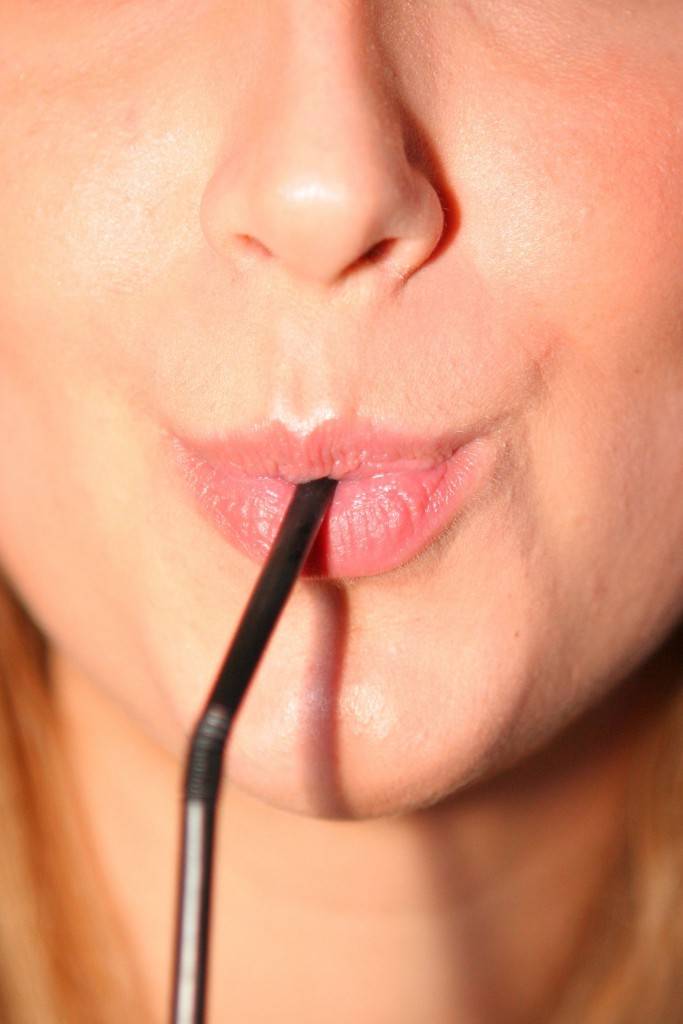If you love soda but want to skip all the nasty sugar and calories, it seems the switch to diet would be a logical choice – maybe in theory but the truth of the matter is, the aspartame in diet drinks and myriads of other highly flavored snacks, processed foods, and sugar-free products is one of our worst enemies. In fact it’s a certifiable grade A sweet deceiver. Plain and simple.

Nothing else does it in your brain quite like diet soda – a deadly combination of the excitotoxin aspartame and caffeine. If you value your health, wonder why you can’t seem to lose weight when you’re drinking calorie free soda and wonder why you don’t feel well you may want to read on for some answers.
I’m pretty fed up with the American food industry for brainwashing the masses with misinformation and false advertising. Diet soda manufacturers market their product by dangling a calorie free carrot in front of us, making us feel like we’re winning the victory over weight gain by switching from regular high sugar/calorie laden soda to a healthier sugar/calorie free diet version. Really?! C’mon, way to give people credit guys. Sheesh!
If I’m being objective, it’s pretty easy for people to buy in to this mentality…it does seem logical…right? Who doesn’t wish this was true? And because of this misconception soda consumers are trading one poison for another, rationalizing it as a better option. But, what if I told you diet soda actually increases belly fat and worse, risk for a myriad of other health conditions? I’ll get to that in a sec but first let’s see what this aspartame is really all about.
The Story of Aspartame
Aspartame aka NutraSweet, Equal, Spoonful, Equal-Measure and NatraTaste to name a few, came about in 1965 by way of accidental discovery when chemist James Schlatter of G.D. Searle Co. was testing for a new anti-ulcer drug. As he was recrystallizing aspartame from ethanol some of the powder stuck to his fingers. Later on he licked his finger and discovered it had a sweet taste.
Originally approved as a supposed safe chemical in 1974, but then temporarily halted by the FDA due to an objection filed by neuroscience researcher, Dr. John W. Olney who found that aspartic acid (a primary ingredient in aspartame) caused holes in the brains of mice plus the investigation of the research practices of G.D. Searle, aspartame still managed to make it’s way to the marketplace in dry goods by 1981 and carbonated beverages by 1983.
Food giant Montsanto didn’t waste much time. By 1985 they had purchased G.D. Searle and made Searle Pharmaceuticals and The NutraSweet Company separate subsidiaries.
As if it’s not bad enough the internal investigation of studies showed aspartame had caused tumors, brain holes, seizures and even death, on top of that a series of falsified claims, compromised study results, and missing information were uncovered – all negative findings had been altered and washed from the final reports presented to the FDA.
Despite the FDA’s efforts for a grand jury investigation of the claims made in favor of aspartame, the case conveniently never went forward. That is, no action was taken to initiate a legal proceeding – oddly enough, one of the men who was supposed to initiate was Assistant U.S. Attorney William Conlon – later hired by the representing law firm of G.D. Searle Co.
Searle’s profits of aspartame continue to soar into the multi billions of dollars despite the fact that there have been more reports to the FDA regarding aspartame reactions (some adverse, including death) than all other food additives combined. 75 percent of adverse reactions to food additives reported to the FDA are by way of aspartame and over 900 studies have been published regarding the health hazards of this chemical additive.
Here’s a real eye-opener: It’s estimated that a marginal 1 percent of people who experience a reaction to aspartame actually report it, so most likely at least a million people have had a reaction to it.
Aspartame – the Sweet Killer
Aspartame is made up of the three chemicals: aspartic acid, phenylalanine, and methanol. Over 90 side effects from aspartame have been documented, some of which include:

- Headaches/migraines
- Nausea/abdominal pains
- Fatigue
- Vision problems
- Sleep problems
- Anxiety/depression
- Memory loss
So in order to be well informed let’s break down these chemicals and see just what kind of effects each has on the body.
Aspartic Acid – 40%
Aspartic acid along with glutamic acid, found in (MSG) is the excitotoxin mentioned earlier. Our brain contains neuron receptors which allow brain cells to communicate with each other and when exposed to excitotoxins (chemicals, usually amino acids, that over stimulate neuron receptors) they “excite” firing impulses at such a rapid rate, literally exhausting themselves to cellular death.
The effects have been noted by scientists to the hypothalamus and temporal lobes which control behavior, emotions, sleep cycles, immunity and onset of puberty.
Particularly disconcerting is that the effect of neural damage in particular areas of the brain remain hidden for awhile before any clinical symptoms of a chronic illness are noticed. Which is why we can see from the types of diseases aspartame can trigger or worsen, at the root most are slow developing and degenerative in nature.

- Multiple Sclerosis (MS)
- Parkinson’s disease
- Alzheimer’s disease
- ALS (Lou Gehrigs disease)
- Chronic Fatigue Syndrome
- Epilepsy
- Fibromyalgia
- Diabetes
Excitotoxins are of particular concern for infants, children, pregnant women, elderly people and people with certain chronic health conditions. If you are regularly drinking diet soda excitotoxins could very well be doing a serious number on your health. The cause of the holes in the brains of mice in the study mentioned earlier – caused by aspartic acid.
It’s interesting to note that in 1987 the manufacturer of aspartame undertook a search for a drug for memory loss caused by excitatory amino acid damage – one of the very side effects of aspartame.
Phenylalanine – 50%
On the surface phenylalanine, an amino acid absorbed in the brain, doesn’t appear to be a problem, if it’s in low amounts and can be safely metabolized. But people with phenylketonuria (PKU) are missing an enzyme to metabolize it and if ingested it can lead to dangerously high levels (at times, lethal) in the brain. People with PKU, pregnant and breastfeeding women, and those taking antipsychotic drugs are cautioned against use of aspartame.
High blood phenylalanine levels in parts of the brain is especially dangerous to infants and fetuses and if left untreated before 3 weeks of age, PKU can cause severe, irreversible intellectual disability. High levels in children can cause anxiety, jitteriness, hyperactivity and autism. Added to the concern regarding the effects of aspartic acid in aspartame on puberty, it’s safe to say aspartame is best avoided by children.
Other side effects of high levels of phenylalanine include:
- Headaches
- Nausea
- Heartburn
- Mood swings/depression (interference with serotonin production)
- Nerve Damage
Human testing has shown significant increase in phenylalanine in people who chronically used aspartame and excessive blood levels of phenylalanine has shown up in those who consumed large amounts of aspartame over a long period of time – keep in mind in both scenarios, subjects did not have PKU. By now, it should be easy to see the correlation between aspartame and nervous system damage.
Methanol – 10%

Last but far from least (even at 10 percent), methanol aka wood alcohol (a byproduct of destructive distillation of wood), described as highly toxic and unfit for consumption – used as a solvent, fuel, antifreeze, denaturant for ethanol, and for producing biodiesel.
Methanol turns into formaldehyde (the stuff used to preserve human and animal remains) in the body. It’s considered a toxic and volatile substance and in 2011, was described as a known human carcinogen by the National Toxicology Program.
Due to it’s cumulative poisonous effects, the EPA recommends limiting consumption of methanol to 7.8 mg/day. To put the dangers of beverages with aspartame into perspective, a 1 liter beverage with aspartame contains about 56 mg of methanol. On the high end, people consuming lots of products with aspartame are getting up to 250 mg of methanol per day.
Methanol poisoning can cause many side effects:
- Headaches
- Dizziness/vertigo
- Buzzing in the ears
- Memory lapses
- Multiple vision problems
- Nausea/gastrointestinal disturbances
- Behavioral issues
- Shooting pains in extremities/weakness/numbness
- Burning tongue
- DNA damage/birth defects
Worse yet when aspartame is heated above 86° F, it becomes even more volatile and easier to absorb. A classic and disturbing real live case of this effect was Desert Storm. Troops were sent several thousand pallets of diet beverages sweetened with aspartame that sat in the 120° F sun for several weeks. The service men/women that drank them all day long returned home with numerous symptoms reflective of free methanol (formaldehyde) poisoning.
Since 1993 the use of aspartame in numerous food items that are made to be heated to above 86° F has been approved by the FDA.
Aspartame – the Sweet Deceiver
Weight Gain

If you think diet soda helps you lose weight, think again. Believe it or not, the aspartame in diet soda stimulates your appetite, increases cravings for carbohydrates and stimulates fat storage and weight gain.
Your brain recognizes it as a sugar imposter, is not satisfied by it, and tricks your body into craving more sugar. Our bodies are pretty darn smart people.
This is considered metabolic syndrome which studies have shown a 36 percent greater risk for, in those with at least daily diet soda consumption.
Artificial sweeteners lower levels of leptin, a hormone that signals your brain to stop eating when you’re full. When it becomes suppressed the body continues to crave carbohydrates and other sweets, which explains why research proves that those who drink diet sodas gain an average of 3 inches of belly fat per year compared to 1.8 inches in those who occasionally drink it and less than an inch in those that don’t don’t drink it. The largest gains are in those already overweight.
The most important takeaway when considering weight gain with diet soda is the fact that it ups belly fat in particular, the visceral fat that leads to life threatening diseases.
As a note, the journal Obesity published a study out of the University of Colorado where over the course of 12 weeks, dieters who drank at least 24 ounces of diet soda lost more weight than those who drank at least 24 ounces of water and no diet soda. Keep in mind, the study was funded by the American Beverage Association, so it must be the truth (insert sarcasm and big bucks).
Diabetes
Think sugar-free means diabetes free? Ironically the odds for diabetes in those who drink diet soda is higher than those who drink regular. Studies show a 67 percent greater risk of type 2 diabetes in diet soda drinkers.
Because your body’s not satisfied by the artificial sweetener, it craves more, so frequent consumers of diet soda drink almost twice the amount compared to those who drink regular. The physiological effects of aspartame still increase blood sugar and insulin levels that lead to diabetes.
Kidney Stones, Low Bone Density and Dental Problems
With a pH ten thousand times more acidic than water (it takes 32, 8 ounce glasses of water to neutralize the acid in one can of soda) diet soda leaches minerals from the body. Your body then has to offset this by pulling from it’s stores (mainly calcium, magnesium and potassium) in bones, teeth and muscles – which weakens these structures over time.
Excess calcium that can’t be excreted builds up in the kidneys, causing calcium based kidney stones. The artificial sweeteners and high levels of sodium in diet drinks were implicated as cause for doubled risk of faster than normal declining kidney function in a study conducted with 3,000 women who drank two or more of these beverages daily.
What Are Some Good Beverage Chioces Without Aspartame?
Probably no surprise, that my number one recommended beverage is…that’s right, the most important and functional beverage from nature – water. No beverage gives your body all that it needs like water. Just doesn’t. Seriously, tell me if any other beverage satisfies your body on a cellular level like water? And I’m not talking about flavor satisfaction (more on that), I’m talking ahhhhh….I feel hydrated, like really hydrated – just can’t get that with any other beverage folks.

But, if it’s flavor and variety you’re after try these instead of diet soda:
- Fruit, lemon, ginger, or herb infused waters
- Probiotic rich kombucha or kefir water (recipe here)
- Mineral water sweetened with flavored stevia
- Herbal teas
- Coconut water
- Apple cider vinegar drinks (Braggs makes awesome ones)
- Fresh fruit and vegetable juices
Keep in mind you may have to ween yourself off diet soda slowly to minimize withdrawal/detox symptoms (lots of water will help) – replacing it with these alternative beverages will help keep you moving forward, and hey you just may find a new favorite you never even considered before!
Final Thoughts
By now, you can see that sugar has it’s own slew of problems but aspartame is no better, in fact it may even be worse.
Fortunately a growing number of consumers are becoming more saavy to the deception and marketing of large beverage companies and choosing better alternatives for their heath. As sales of regular sodas continue to decline, I hope diet soda sales follow.
As Beverage Digest’s publisher stated in his opening remarks during an annual beverage industry event, where companies such as PepsiCo, Coca-Cola, and the Dr Pepper Snapple Group and many more, rub elbows and showcase their products, “It’s been a really challenging decade. It would have been a lot rougher if not for bottled water.”
Not that I dig the fact that they are able to include bottled water in their repertoire but, heck yeah water, go ahead and crowd that soda out, I’m rooting for you. Thanks for reading!
Were you aware of what diet soda really does to your health before reading this? What do you think? Have any favorite healthy beverages?
